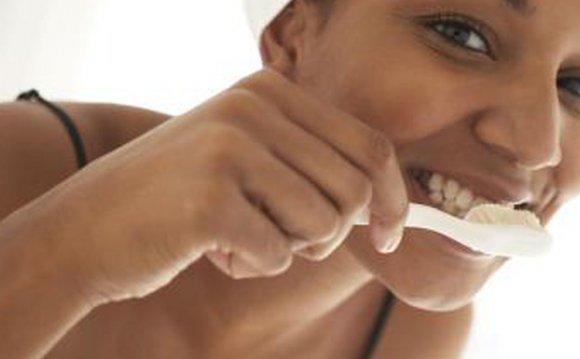
![]() Teeth whitening has become a craze in America. A brighter smile can boost your confidence and self-esteem. Many people have dentists supervise their whitening process, whether they have treatments in the office or at home. This is the wisest, most efficient way to whiten teeth, but it can be hard on your wallet. If you can't afford such glamor, there are natural remedies, from ingredients you probably already have at home, and they can work for you overnight.
Teeth whitening has become a craze in America. A brighter smile can boost your confidence and self-esteem. Many people have dentists supervise their whitening process, whether they have treatments in the office or at home. This is the wisest, most efficient way to whiten teeth, but it can be hard on your wallet. If you can't afford such glamor, there are natural remedies, from ingredients you probably already have at home, and they can work for you overnight.
Baking soda is non-toxic and has been used for many years for a variety of cleaning purposes. It is also effective for cleaning and whitening teeth. Bonus-it kills germs in your mouth that can cause plaque.
According to Adina Carrel, DMD, a private dentist at Manhattan Dental Arts in New York, an inexpensive and effective remedy uses malic acid to help whiten teeth. The word acid may worry you, but this acid is made when combining baking soda and strawberries, so it is safe to use at home. Crush one large strawberry, and mix with ½ tsp.of baking soda until blended. Use a soft toothbrush to spread this mixture evenly across your teeth. Leave on for 5 minutes, followed by brushing with regular toothpaste. Rinse thoroughly. Only use this once per week, as Dr.Carrel cautions that using this too often could damage the enamel on your teeth.
Add ¼ cup hydrogen peroxide, 2 tbsp. baking soda, and ¼ cup strong mouthwash to one cup of water. Swish in your mouth for 1 full minute. Rinse well.
Make your own whitening toothpaste by combining 2 tbsp. baking soda, 2 tbsp. hydrogen peroxide, ½ tsp. of table salt and a dab of regular toothpaste. Brush for at least two minutes and clean off well with warm water. Brush again with regular toothpaste. You may use this safely once a week.
Make molds of your upper and lower teeth with two small pieces of aluminum foil. Mix 2 tbsp. baking soda with 2 tbsp. toothpaste. Put the mixture on the foil. Place the foil on your teeth, getting the mixture evenly over the teeth, then press the foil to fit the natural molding of your teeth. Leave on for 30 to 60 minutes. Clean off well with regular toothpaste. Don’t use this more than once a week.
Brush with apple cider vinegar for 5 minutes before brushing with normal toothpaste.
Eat fresh vegetables and rub them over your teeth while chewing. Naturally-abrasive vegetables include celery, unpeeled carrots, broccoli and unpeeled cucumbers. Don’t do this in front of dinner guests.
Whiten carefully. Gordon Christensen, DDS, MSD, PhD, from the American Dental Association cautions you to avoid permanent damage. Bleaching your teeth can cause sensitivity and irritation of the tissues in your mouth. It’s important to match any restorative work-such as crowns-and you should check with your dentist before including previous dental work in the whitening process. He also points out that little research has been done on the long-term use of whitening agents.
Take a picture of your teeth before whitening. The process is gradual and you may not notice color change without comparing to a before picture.
Some yellowing is natural and is a sign of healthy enamel, which contains calcium, an essential mineral for your teeth. Don’t over-bleach to the point of unnatural color or enamel damage. Dr. Christensen compares this super whitening to an elderly person who dyes his hair jet black-natural is more attractive.









